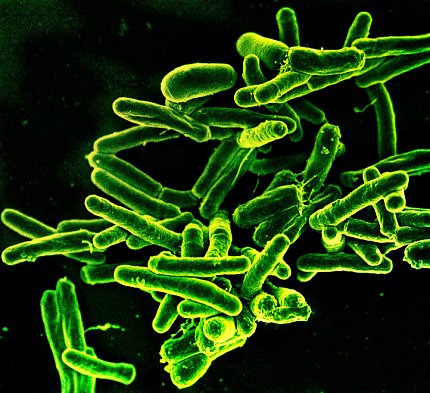Temperature-Stable TB Vaccine Found Safe

Photo: NIAID
A clinical trial testing a freeze-dried, temperature-stable experimental tuberculosis (TB) vaccine in healthy adults found that it was safe and stimulated both antibodies and responses from the cellular arm of the immune system. Results from the phase 1 trial, supported by NIAID, were published in Nature Communications.
This was the first clinical trial of any sub-unit TB vaccine candidate in a thermostable form. The experimental vaccine, ID93+GLA-SE, was developed by scientists at the Access to Advanced Health Institute in Seattle. It is a recombinant sub-unit vaccine made from four proteins of Mycobacterium tuberculosis bacteria combined with GLA-SE, an immune-stimulating adjuvant.
The freeze-dried formulation does not require refrigeration and is mixed with sterile water just prior to injection. Thermostable vaccines are desirable in settings where maintaining cold or frozen vaccines for long periods can be costly and difficult. A single-vial presentation of a thermostable vaccine would have clear advantages in ease of storage, transport and administration, investigators pointed out.
While noting some limitations in this small trial, investigators nevertheless concluded that results demonstrate “a proof-of-concept that adjuvant-containing vaccines can be formulated in a freeze-dried single-vial presentation without detrimentally impacting clinical immunogenicity or safety characteristics.”
